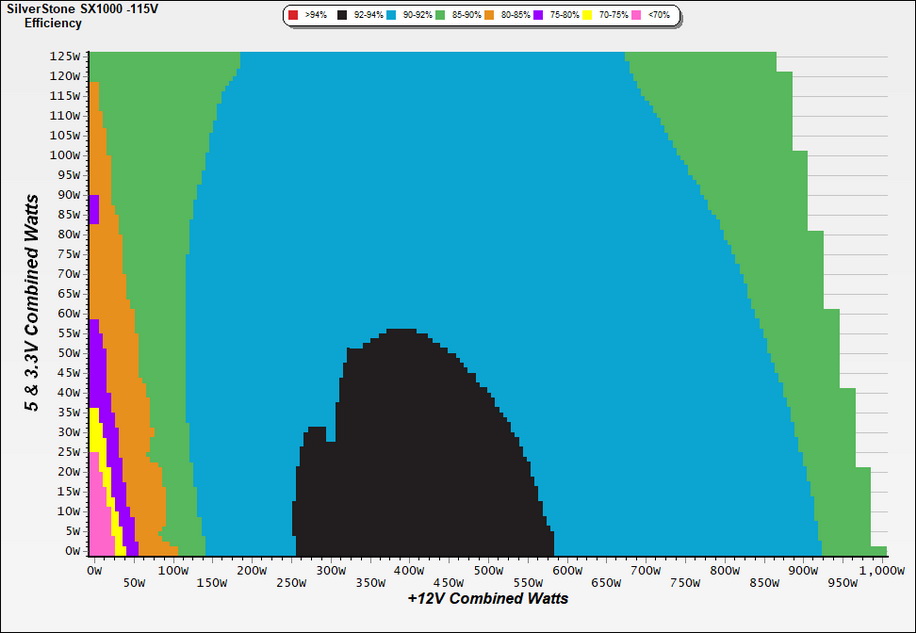Why you can trust Tom's Hardware
Protection Features
Check out our PSUs 101 article to learn more about PSU protection features.
|
OCP (Cold @ 24°C) |
12V: 122.8A (147.42%), 11.937V |
|
OCP (Hot @ 43°C) | 12V: 122.4A (146.94%), 11.901V 5V: 32.3A (129.2%), 4.970V 3.3V: 33.2A (132.8%), 3.292V 5VSB: 5.4A (180%), 4.981V |
|
OPP (Cold @ 25°C) |
1479.06W (147.91%) |
|
OPP (Hot @ 43°C) |
1469.76W (146.98%) |
|
OTP |
✗ (>200°C @ secondary side) |
|
SCP |
12V to Earth: ✓ |
|
PWR_OK |
Proper operation |
|
NLO |
✓ |
|
SIP | Surge: MOV Inrush: NTC Thermistor & Bypass relay |
We don't see an SFX-L PSU delivering close to 1500W every day. This is a real power factory! That said, the +12V OCP and the OPP triggering points should be set more conservatively, at around 130%. Another downside is the lack of over-temperature protection, which can save the day if something goes wrong with the PSU's cooling.
DC Power Sequencing
According to Intel’s most recent Power Supply Design Guide (revision 1.4), the +12V and 5V outputs must be equal to or greater than the 3.3V rail at all times. Unfortunately, Intel doesn't mention why it is so important to always keep the 3.3V rail's voltage lower than the levels of the other two outputs.
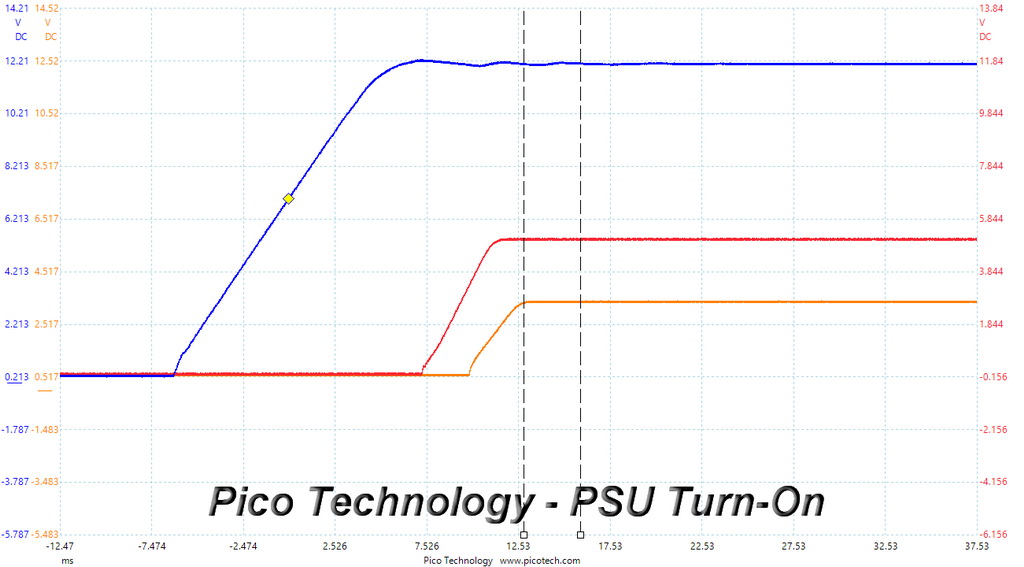
DC Power Sequencing Scope Shots
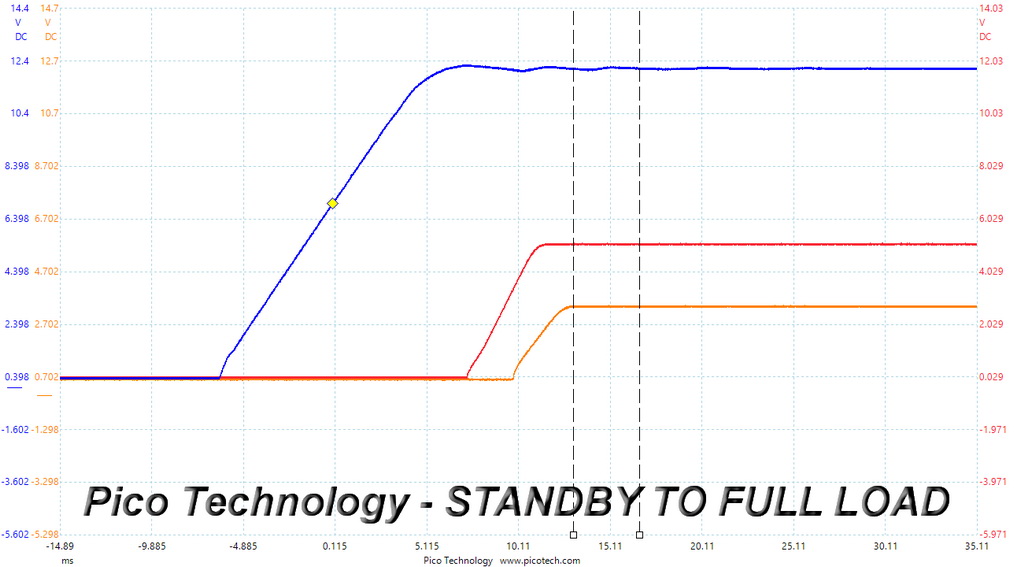
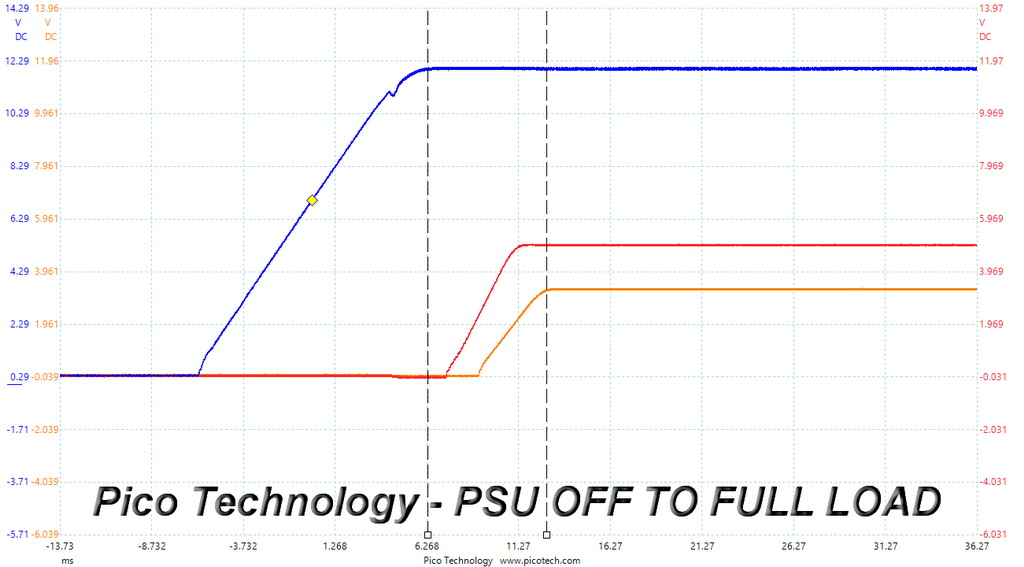
The 3.3V rail is always lower than the other two, so everything is fine here.
Cross Load Tests
To generate the following charts, we set our loaders to auto mode through custom-made software before trying more than 25,000 possible load combinations with the +12V, 5V, and 3.3V rails. The deviations in each of the charts below are calculated by taking the nominal values of the rails (12V, 5V, and 3.3V) as point zero. The ambient temperature during testing was between 30 to 32 degrees Celsius (86 to 89.6 degrees Fahrenheit).
Load Regulation Charts
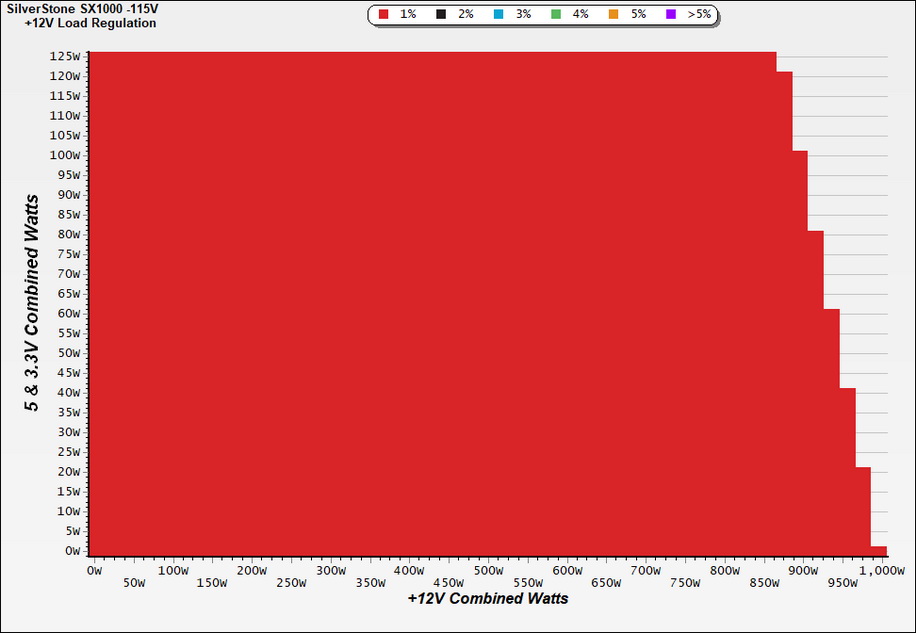
Load Regulation Graphs
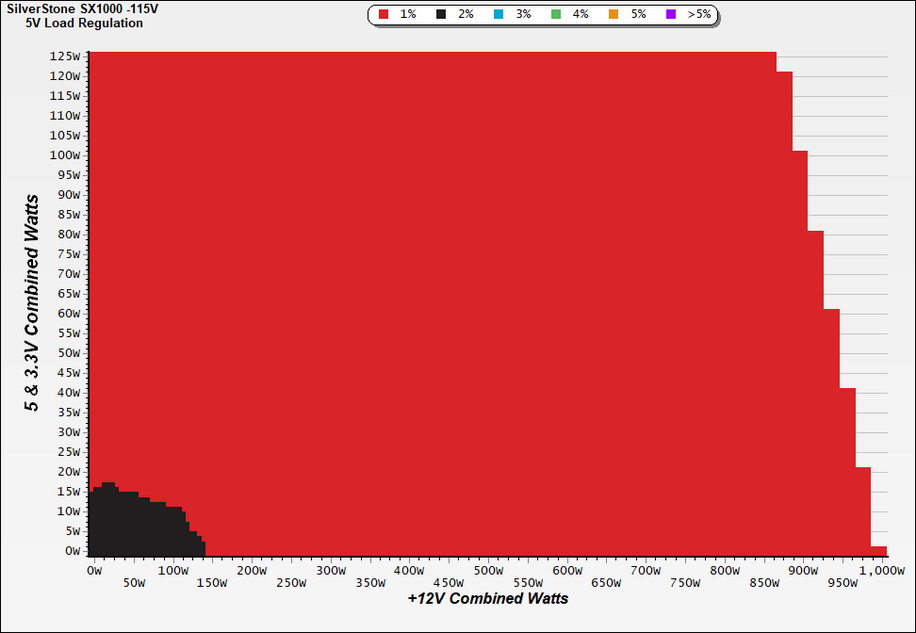
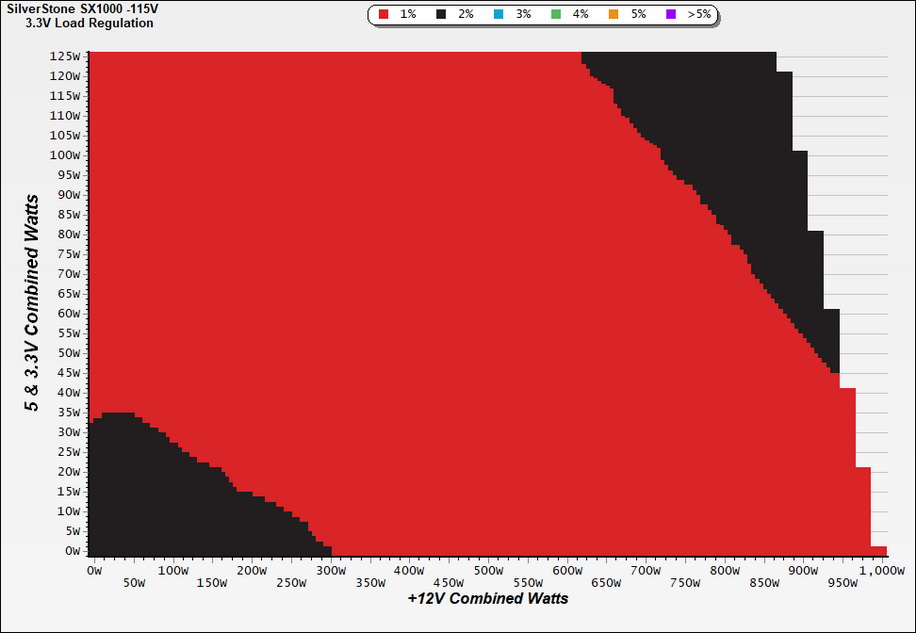
Efficiency Graph
Ripple Graphs
The lower the power supply's ripple, the more stable the system will be and less stress will also be applied to its components.
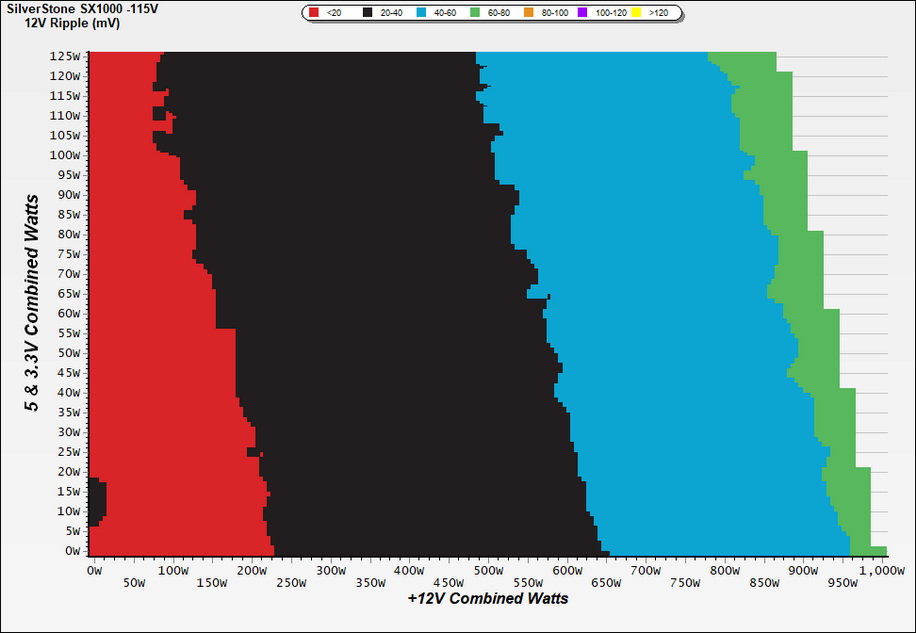
Ripple Suppression Graphs
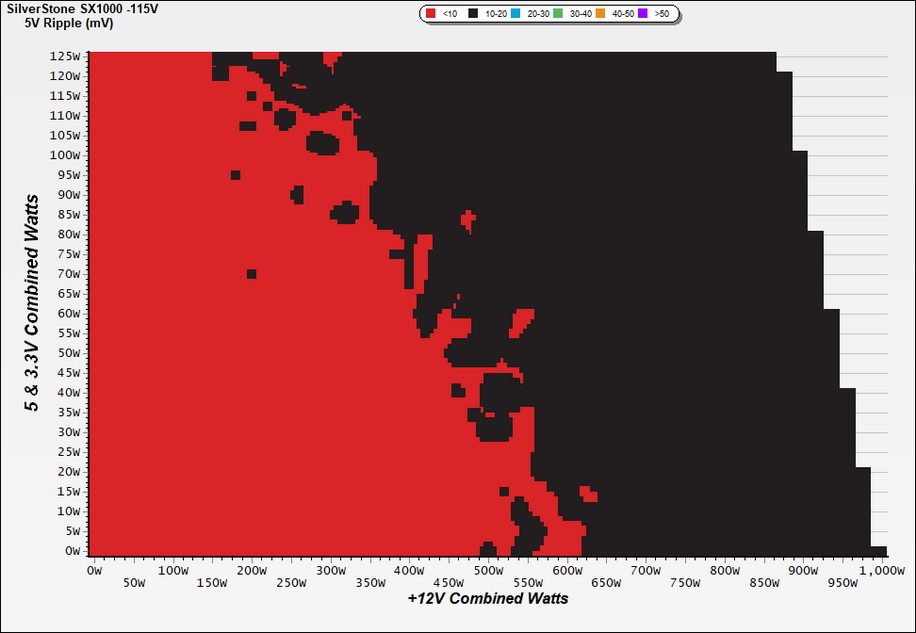
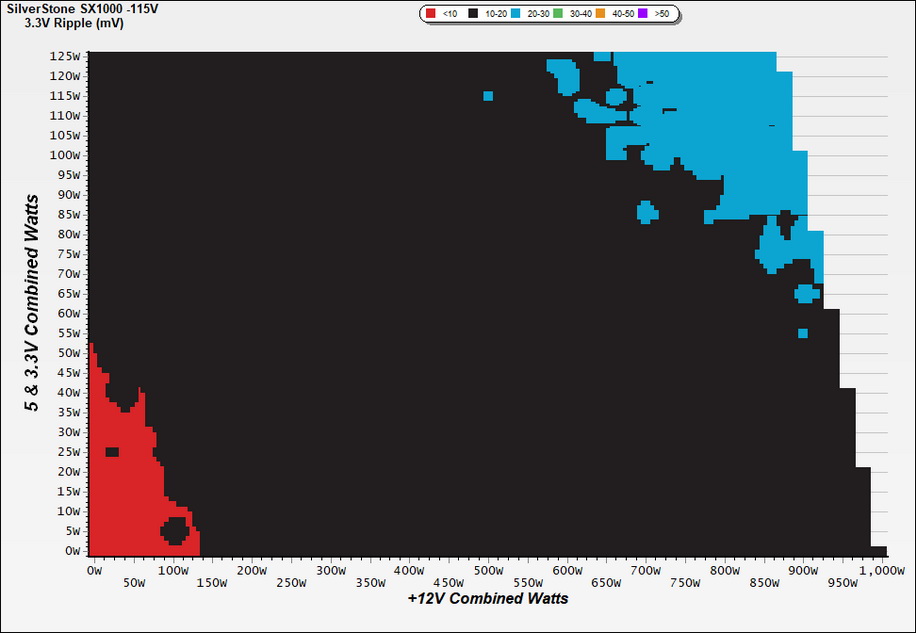
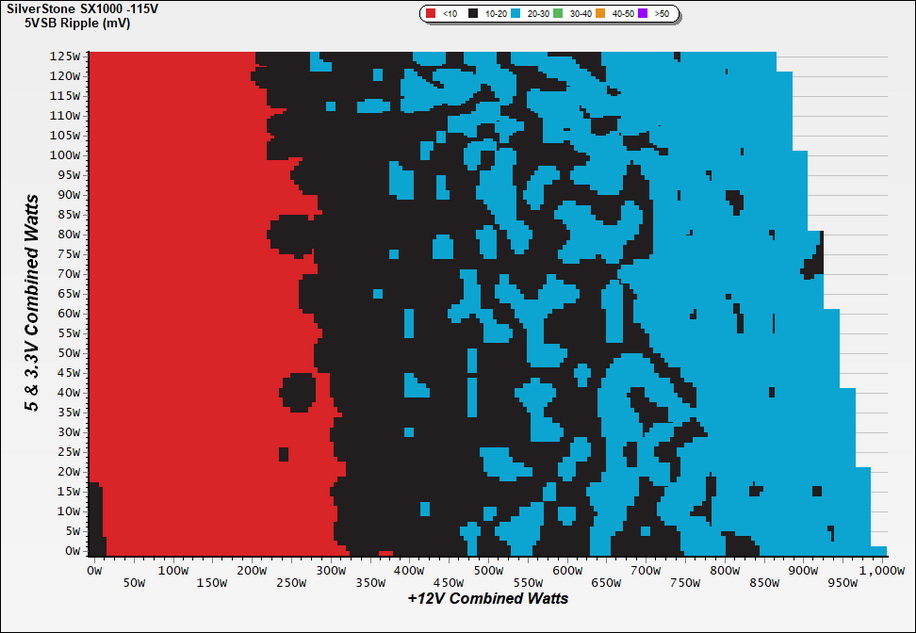
Infrared Images
We apply a half-load for 10 minutes with the PSU's top cover and cooling fan removed before taking photos with a modified FLIR E4 camera able to deliver an IR resolution of 320x240 (76,800 pixels).
Get Tom's Hardware's best news and in-depth reviews, straight to your inbox.
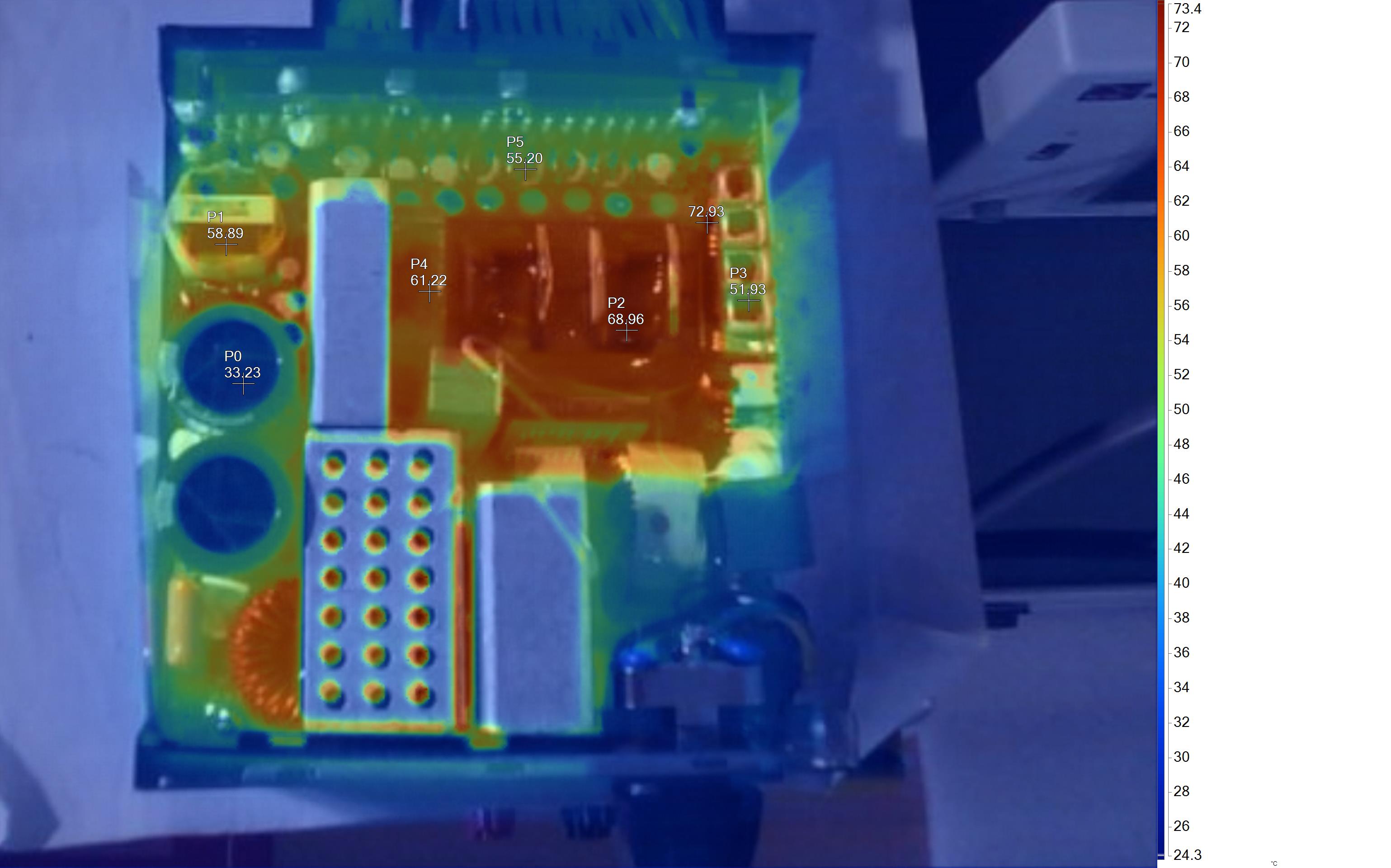
IR Images
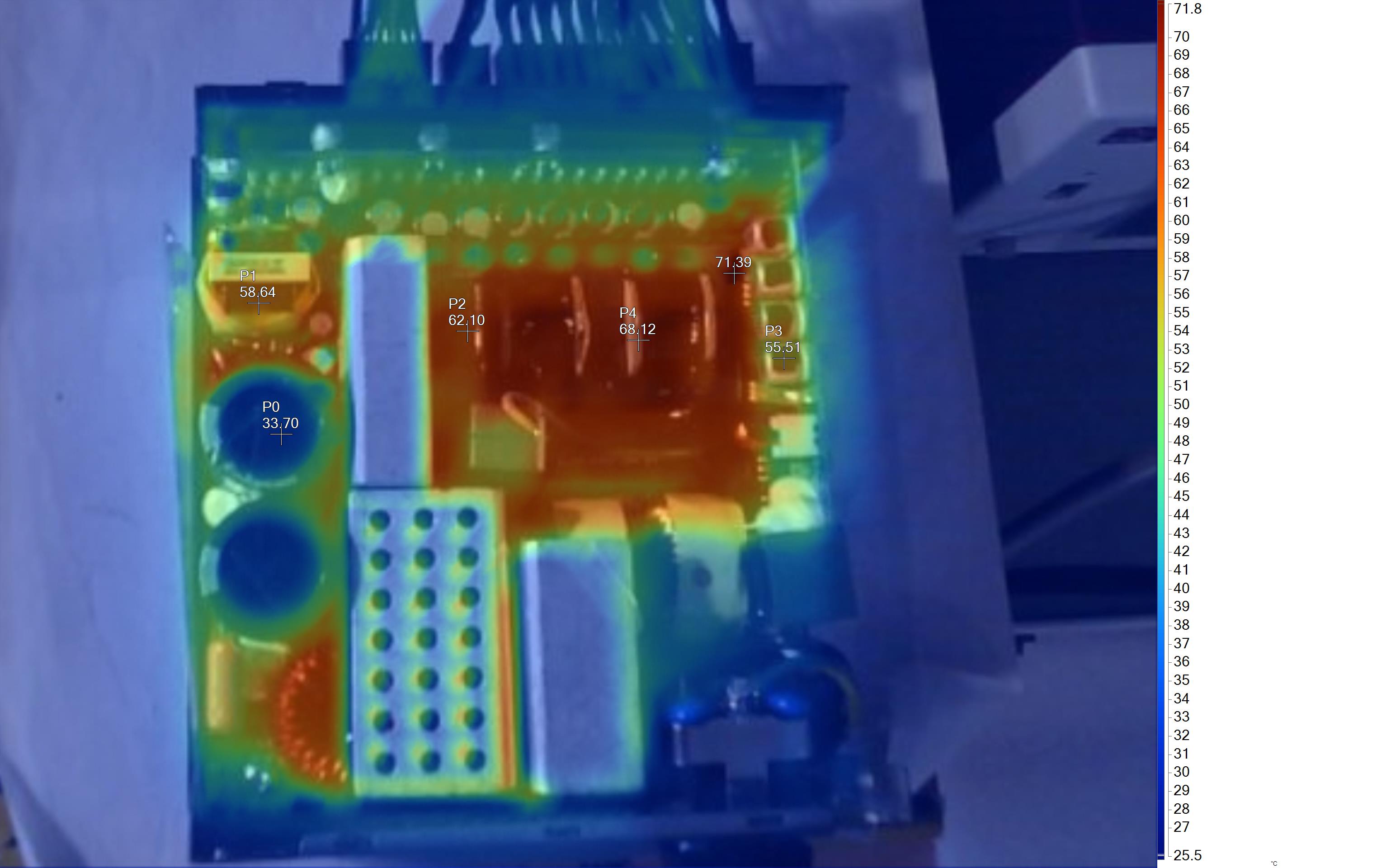
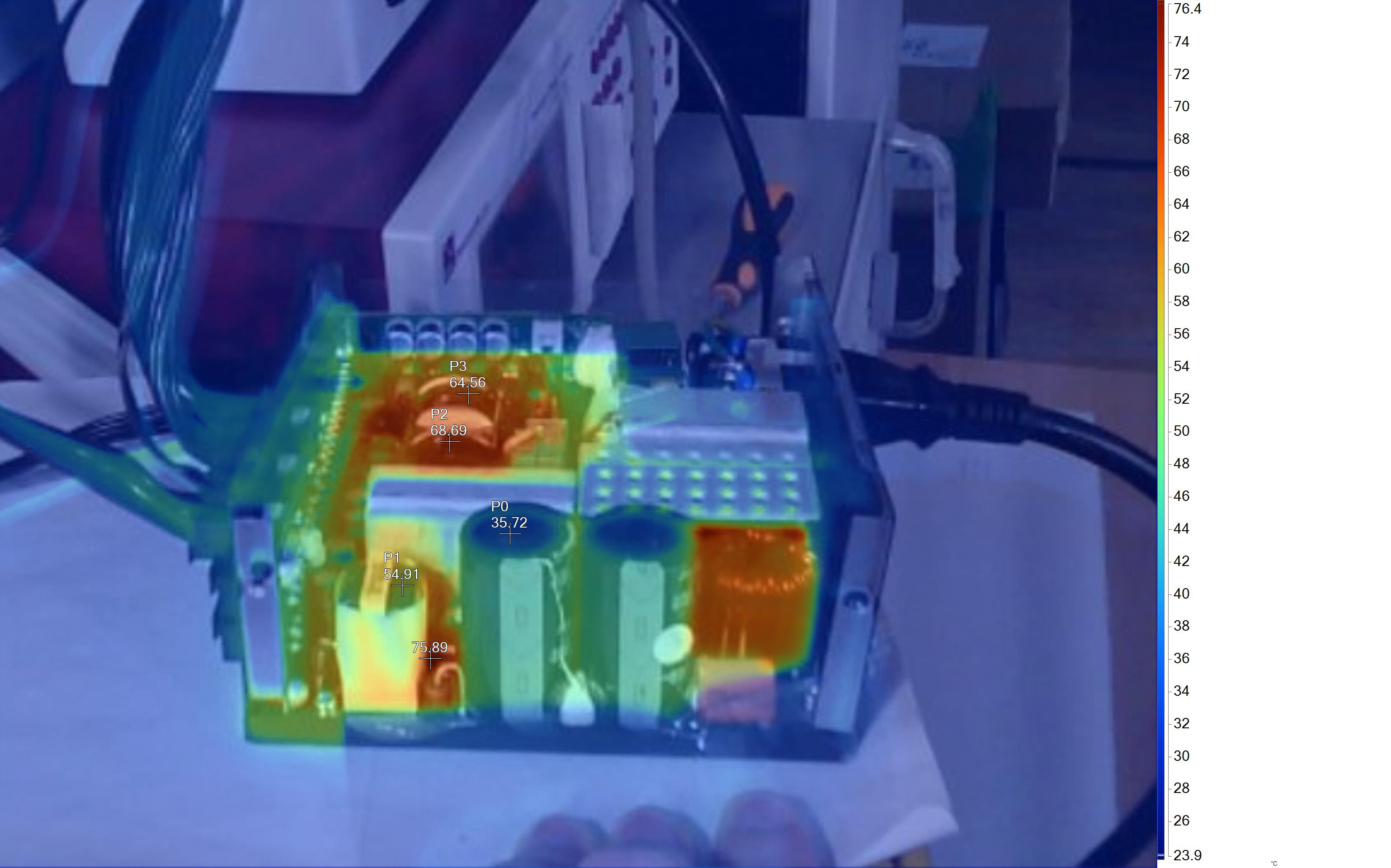
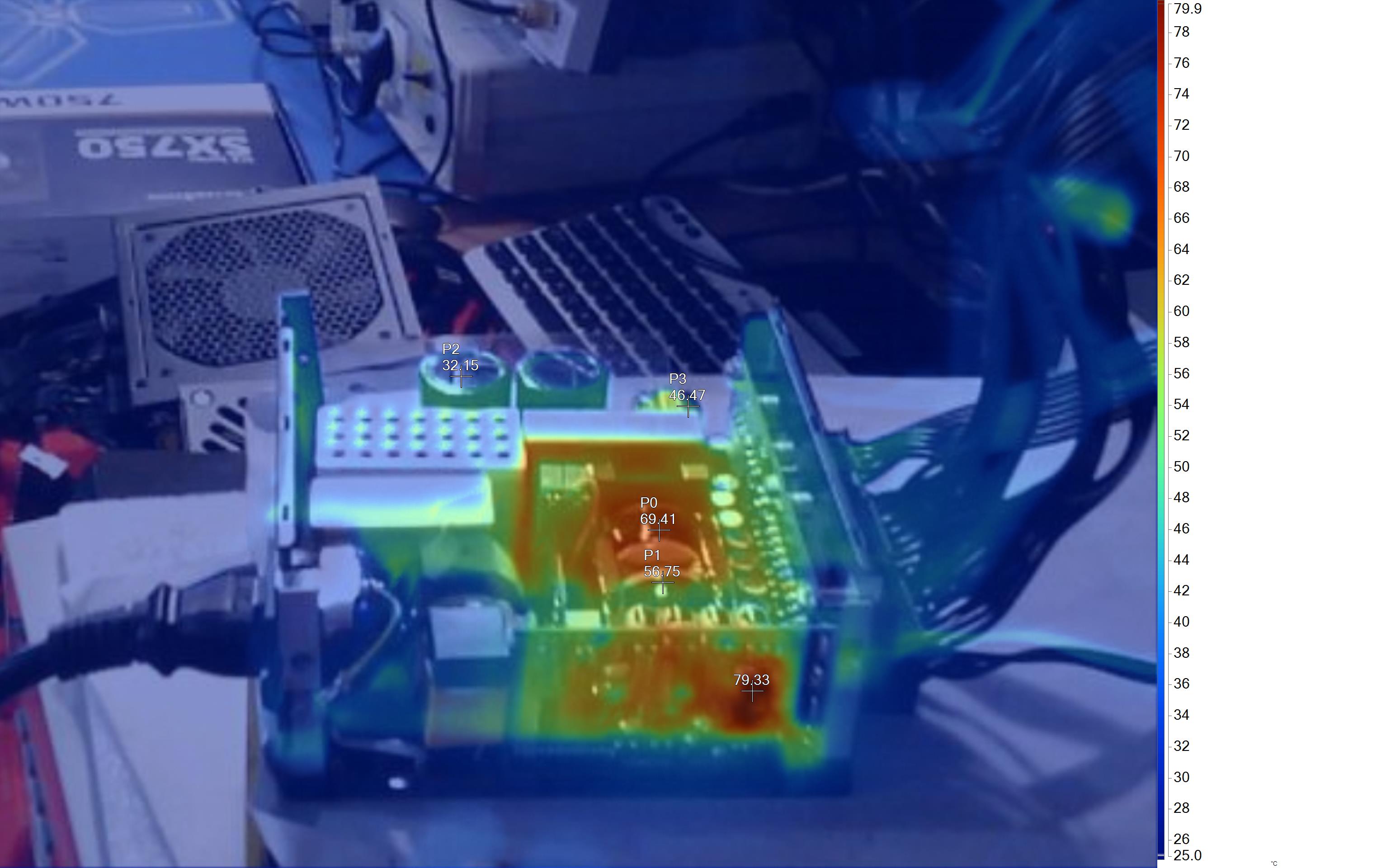
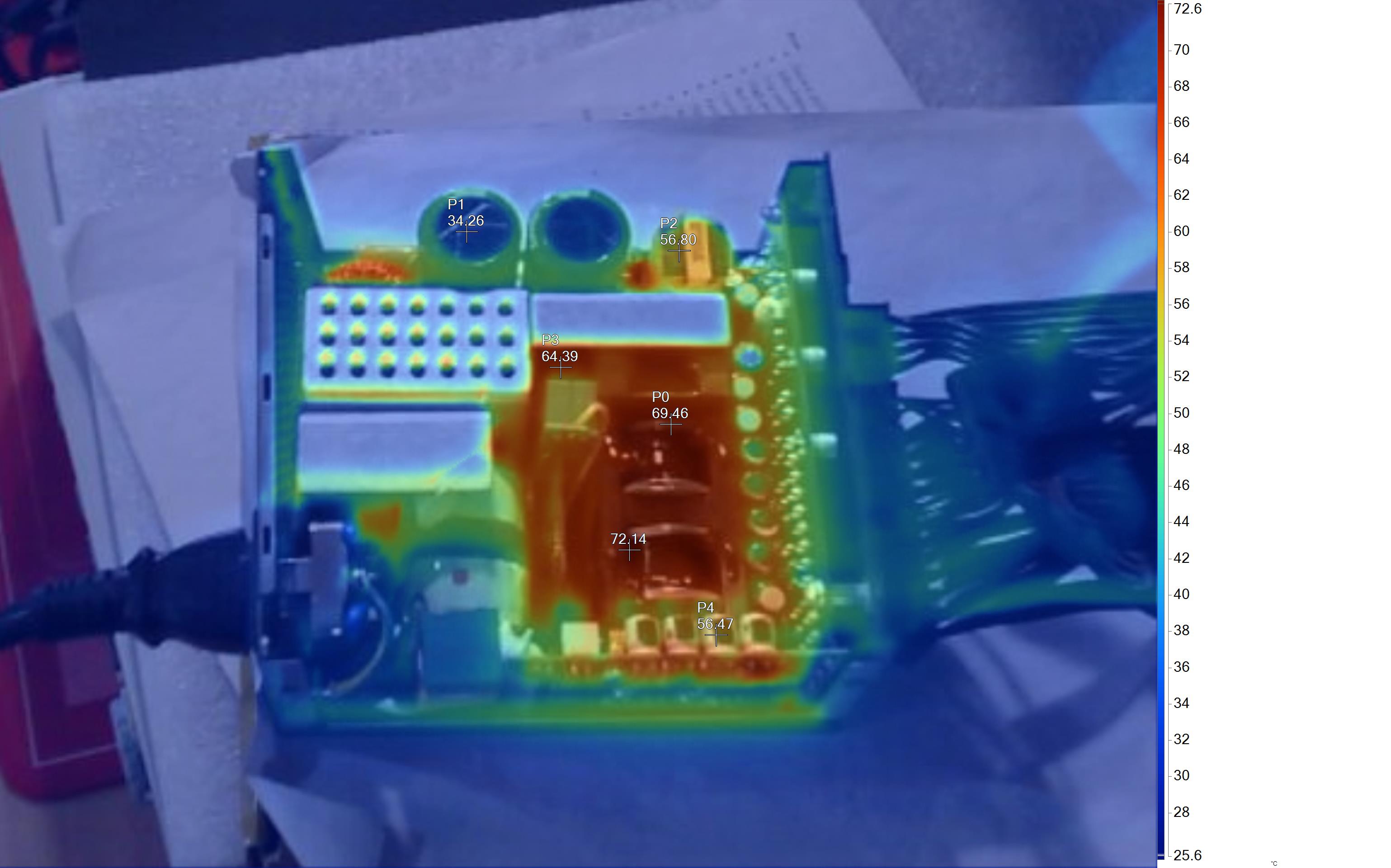
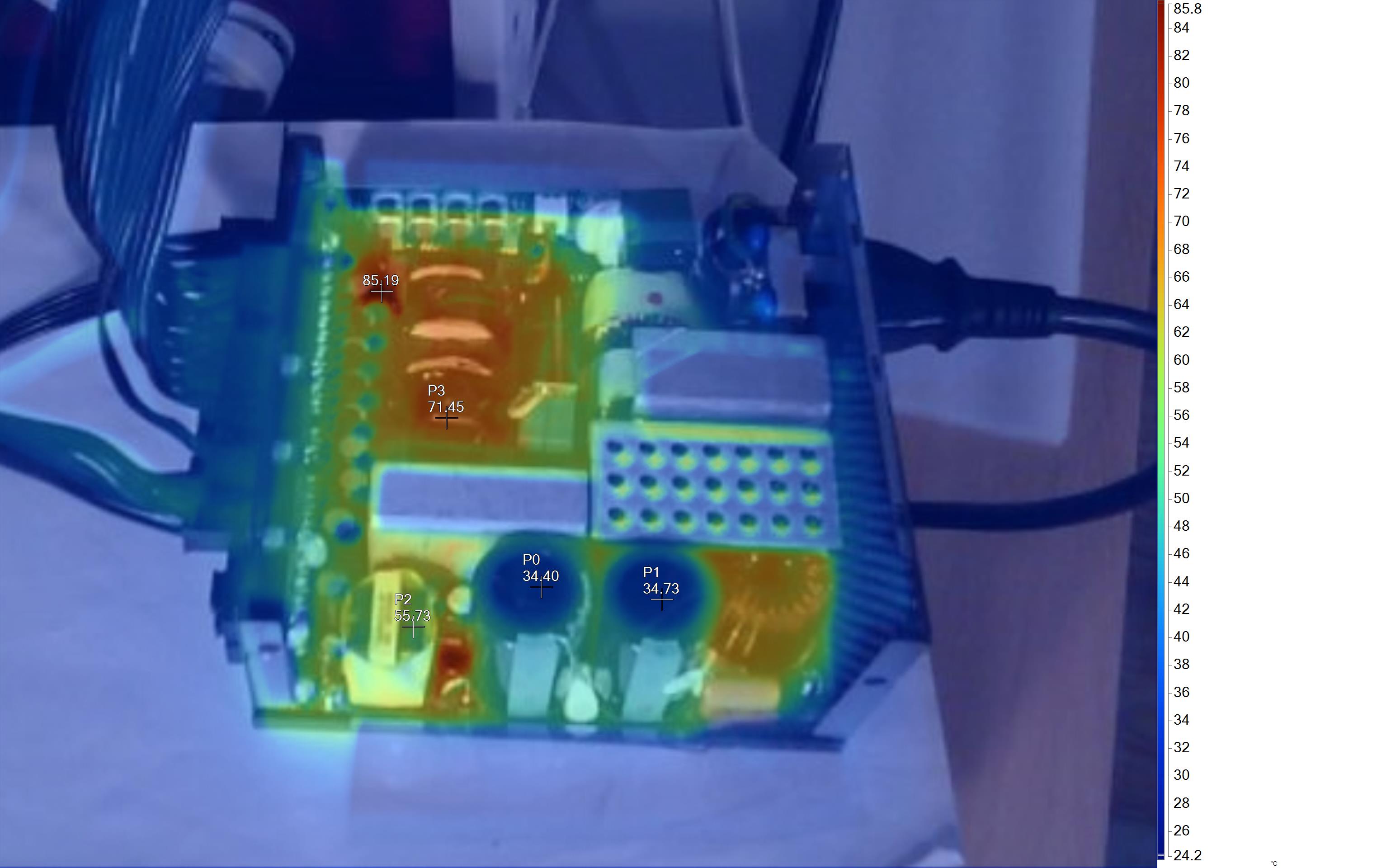
The hottest area is where the main transformers are installed. Still, temperatures remain low, given the operating conditions.
MORE: Best Power Supplies
MORE: How We Test Power Supplies
MORE: All Power Supply Content
Current page: Protection Features, DC Power Sequencing, Cross-Load Tests and Infrared Images
Prev Page Load Regulation, Hold-Up Time, Inrush & Leakage Current, Efficiency and Noise Next Page Transient Response Tests, Timing Tests, Ripple Measurements and EMC Pre-Compliance Testing
Aris Mpitziopoulos is a contributing editor at Tom's Hardware, covering PSUs.
-
littlechipsbigchips Why would anyone need 1000 watts in small itx case ? it will only take one GPU anyways and no one needs 1000 watts for that.Reply -
anonymousdude Replylittlechipsbigchips said:Why would anyone need 1000 watts in small itx case ? it will only take one GPU anyways and no one needs 1000 watts for that.
If you want to stay around 50% load for max efficiency then this needed. Especially when people cram like a 3090 and a 5950x/ into an ITX with custom water cooling and stuff just because they can. Alternatively they might be a modder where they need the smaller PSU for some reason. Definitely a niche product though. -
COLGeek I have the 700w version of this in a Fractal Design ITX case. It does not ship with the bracket necessary to mount to an ATX PSU location. Just sharing for others to be aware of.Reply
Nearly silent PSU, by the way. -
junglist724 Reply
My 3090FE trips OCP on my SF750 platinum in several games at 4K. Asus even said they measured up to 940W peak power draw from a 3090 in a recent video showcasing their new Thor PSUs. oy65PZCTIlc:2270View: https://youtu.be/oy65PZCTIlc?t=37m50slittlechipsbigchips said:Why would anyone need 1000 watts in small itx case ? it will only take one GPU anyways and no one needs 1000 watts for that.
